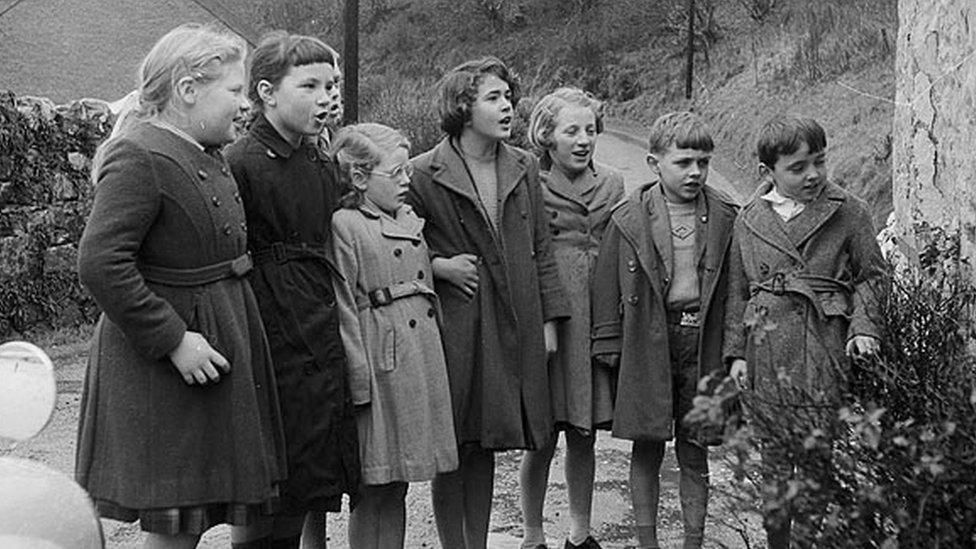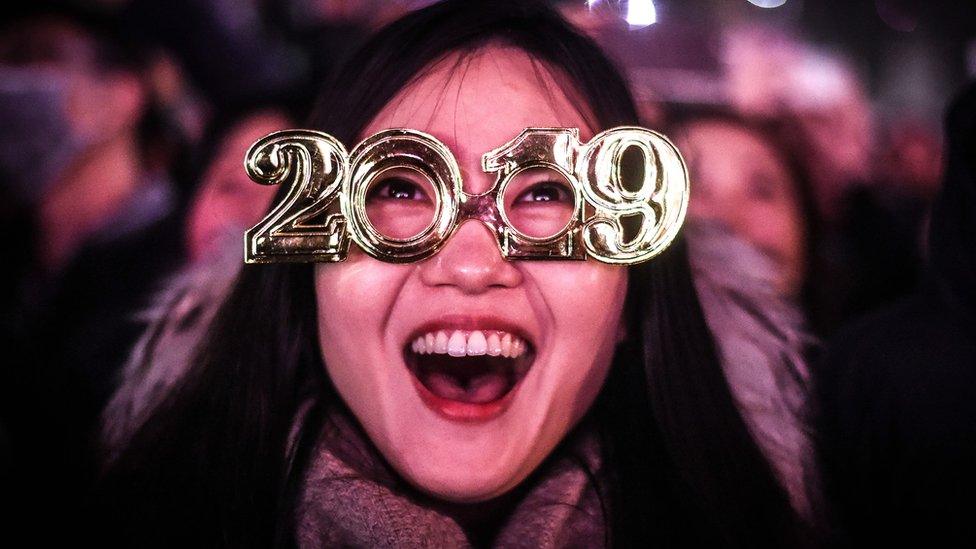Hen Galan: Welsh village celebrates New Year on 13 January
- Published

An old tradition where children go door-to-door singing traditional songs still takes place in the Gwaun Valley
Villagers in west Wales are wishing each other a happy new year - despite it being almost a fortnight into 2019.
But people in Cwm Gwaun, Pembrokeshire, have not got their dates mixed up, they will be celebrating Hen Galan or "the old new year."
The tradition, which follows the Julian calendar, is still celebrated in the small community.
Resident Lilwen McAllister, 74, said: "It's bigger than Christmas for me."
The Julian calendar was abolished in 1752 and replaced with the Gregorian calendar, which was approved by Pope Gregory XIII nearly 200 years earlier.
However, the people of the Gwaun Valley have still resisted the change.
"Maybe we are stubborn," said Ms McAllister, who has run a bed and breakfast for the past 44 years.
"As a child it was like having two Christmases.
"You would have a big dinner on Christmas Day and then there would be a giant feast for Hen Galan.
"Farms would brew their own beer and their doors would always be open to any who came to visit."

The Dyffryn Arms, known locally as Bessie's, has become a hub for celebrations of Hen Galan
The feasts of yesteryear have since been replaced with more of a knees-up at family run pub The Dyffryn Arms.
The Calennig tradition, which sees children go door-to-door singing Welsh songs, also still remains.
Usually there is also an extra benefit for youngsters as they get the day off school, but this year's Hen Galan falls on the weekend.
Locals also do not need to worry about panic buying at supermarkets when stocking up on party food - or most shops being closed the following day.
Sarah Davies, who owns the Gwaun Valley Brewery with husband Len, said it was amazing that Hen Galan has stood the test of time.
"We moved here about 20 years ago and had never heard of Hen Galan before," she added.
"As a sort of outsider, I was amazed how the whole community came together and still observed it.
"There's so many traditions that have died out. Even Christmas carol singing isn't as common in Wales like it used to be.
"It's lovely that it's still kept alive. Whenever people hear about it they are quite surprised.
"One year we even had a camera crew from Russia who came over to film - as the old new year is still widely observed there.
"It's one of those lovely quirks that some places still retain."

Some other alternative New Year's Days
5 February: Chinese New Year. This year marks the Year of the Pig
21 March: Norwruz - also known as Iranian New Year. Celebrated for more than 3,000 years and considered a holy day by those who follow the Zoroastrian religion
31 August: Islamic New Year. The date changes every year because the Islamic calendar is 11 to 12 days shorter than a Gregorian year
- Published1 January 2019

- Published2 January 2019
